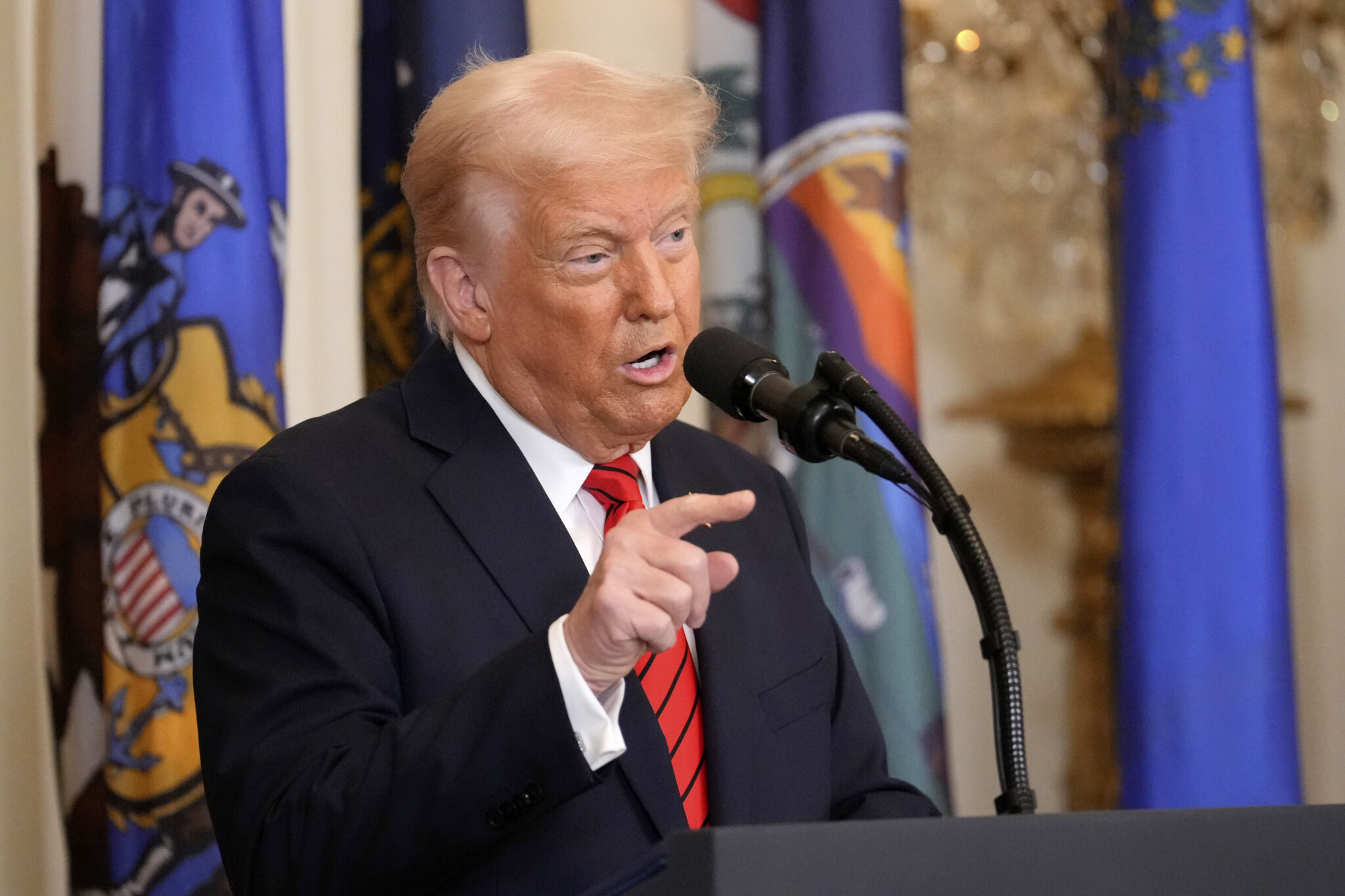During a recent episode of The Hub’s election podcast, pollster and CEO of Ipsos Public Affairs Darrell Bricker provided insight into Canada’s political and economic climate following the Trump administration’s announcement of aggressive new tariffs, which have hit China, India, Vietnam, the European Union, and several other countries with 10-50 percent tariffs on imports to the U.S. Notably, Canada was not included in the list, but will still find its autos tariffed at 25 percent.
The conversation examined how these developments might influence the ongoing federal election and Canada’s future trade relationships.
Here are three takeaways from the discussion:
- Canada’s evolving trade sentiment: Bricker highlighted how Canadian attitudes toward free trade have undergone a significant transformation in recent decades. While opposition was strong during the economic struggles of the early 1990s, support has grown steadily as trade agreements like NAFTA demonstrated their economic benefits.
- Leadership credibility over policy: Bricker said this election is becoming less about specific trade policy differences and more about which leader Canadians trust to negotiate effectively with the Trump administration.
- A changing world order and deepening regional fault lines: Bricker argued that with the introduction of Trump’s worldwide tariffs, the liberal democratic world order is under attack. He also examined significant divisions in how Canadians view economic integration with the U.S. Resource-rich provinces like Alberta show a greater willingness to embrace closer ties, while Quebec and Ontario remain more protective of their cultural sovereignty.
Canadians’ shifting attitudes toward free trade
Bricker noted that Canadian public opinion on free trade has evolved significantly over time. While opposition was strong during the economic difficulties of the early 1990s, support grew in subsequent decades as trade agreements like NAFTA became associated with prosperity. However, the current global move toward protectionism, exemplified by Trump’s tariffs, is testing this consensus.
While the pollster observed that trade with the U.S. remains generally popular, skepticism persists regarding agreements with countries like China. In particular, thirty percent of Canadians are accepting closer ties with the U.S., even open to annexation if they were guaranteed U.S. citizenship and the conversion of their Canadian financial assets to American dollars.
This, said Bricker, contrasts with older voters who remain attached to traditional notions of Canadian sovereignty and are holding onto a bygone vision of Canada.
Personality over policy in the election
According to Bricker, this election is becoming less about specific trade policies and more about which leader is seen as most capable of handling negotiations with the U.S.
While Conservative leader Pierre Poilievre struggles to distinguish his position, Mark Carney benefits from perceptions of competence in economic matters, even though he is not seen as a strong campaigner.
The discussion highlighted that any post-election renegotiation of trade agreements will likely require difficult compromises on issues like supply management and cultural protections.
A changing world order and regional divides
Bricker highlighted that with Trump’s new tariffs, many U.S. allies are being impacted.
He defined it as a “comprehensive attack from the right on [something] fundamental to the prosperity and peace in the world since the end of the Second World War.”
Bricker also emphasized that there is no single uniform “Canadian” perspective on trade and integration with the U.S. Views vary significantly by region and age group. For example, Alberta and other resource-rich regions are more open to deeper economic ties with the U.S., while Quebec and Ontario place greater emphasis on protecting cultural and linguistic interests from our neighbour to the south.
These divisions complicate the political landscape, as any major trade deal would need to balance competing priorities.
Bricker concluded that corporate interests, which generally favour greater access to U.S. markets, may find themselves at odds with broader public sentiment.
Generative AI assisted in the production of this summary. If you are quoting from or referencing this summary, please refer to the audio to verify.








